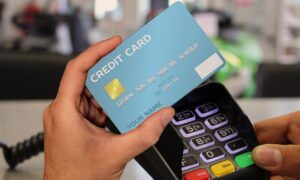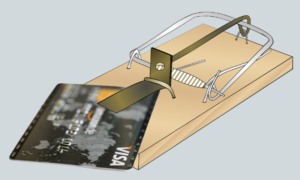Credit cards have become an indispensable financial tool for millions of people. Besides their convenience and security, they allow you to buy without immediate cash. Nevertheless, with this convenience comes great responsibility. This is because credit cards can lead to financial pitfalls if not managed wisely. So, how can you master your credit card usage and get responsible? Read on!
1. Pay Your Bills on Time
Paying your credit card bills on time is crucial for maintaining a healthy credit history. Late payments can significantly negatively impact your credit score, making it more challenging to qualify for loans or obtain favorable interest rates in the future.
When you consistently pay your bills by the due date, you demonstrate responsible financial behavior and build a positive credit history. One of the best ways to do this is to set up automatic payments or reminders to help you stay on track and avoid any accidental missed payments.
2. Keep Your Credit Usage Low
Credit utilization, or usage, refers to the percentage of your available credit that you are currently using. It is a crucial factor in calculating your credit score. Keeping your credit utilization low (typically below 30% of your credit limit) demonstrates responsible credit card use and can positively impact your credit score.
High credit utilization may suggest to lenders that you rely too heavily on credit. This, in turn, could raise concerns about your ability to manage debt. To keep your credit card utilization in check, consider making multiple payments throughout the billing cycle or requesting a credit limit increase if your financial situation allows.
3. Avoid Unnecessary Debts
While credit cards offer convenient purchasing power, it’s essential to avoid accumulating unnecessary debt. Before purchasing with your credit card, consider whether you have the means to pay off the balance in full when the bill arrives. Avoid using credit cards for impulse purchases or non-essential items that can lead to debt without adding significant value to your life.
Responsible credit card use involves using credit for planned expenses or emergencies, ensuring you can comfortably manage the debt without causing financial strain. By exercising discipline and using credit cards strategically, you can prevent debt from spiraling out of control and secure your financial well-being.
4. Set a Budget and Stick to It
Creating a budget is a fundamental step in responsible credit card use. A budget helps you understand your income, expenses, and financial priorities. It allows you to allocate funds wisely. When using credit cards, it’s essential to incorporate your expenses into your budget and ensure you can cover the purchases made.
By setting spending limits for different categories and tracking your credit card expenses, you can avoid overspending and accumulating debt beyond your means. Even better, sticking to your budget empowers you to build savings, meet financial goals, and control your financial situation.
5. Regularly Monitor Your Credit Card Statements
Regularly monitoring your credit card statements helps you detect errors, unauthorized charges, or suspicious activity on your account. You can use a tool such as Finanzradar to help you review and ensure that all your transactions are accurate and legitimate.
Additionally, keeping track of your spending through statements helps you stay aware of your credit card usage and prevents surprises when the bill arrives. If you notice any discrepancies or unauthorized charges, promptly contact your credit card issuer to report the issue and seek resolution.
6. Avoid Cash Advances and High-Interest Transactions
Cash advances and certain high-interest transactions, such as buying casino chips or using credit cards for gambling, typically attract higher interest rates and additional fees. These transactions can quickly escalate into expensive debt and financial strain. It’s best to avoid cash advances unless it is a genuine emergency, as they often come with higher interest rates than regular purchases.
Instead, consider building an emergency fund for unforeseen expenses to avoid relying on expensive credit options. By understanding the terms and conditions of your credit card agreement and using it responsibly for regular purchases, you can steer clear of costly transactions and maintain better control over your finances.
7. Choose Credit Cards with Rewards Aligning with Your Spending Habits
When selecting a credit card, it’s essential to consider the rewards and benefits offered by different cards and ensure they align with your spending habits and lifestyle. Some credit cards offer cashback on specific categories like groceries, dining, or gas, while others provide travel rewards, points, or miles. By choosing a credit card that complements your regular spending, you can maximize the rewards and get the most value out of your card.
For example, if you frequently travel, a travel rewards card with airline miles or hotel points might be better, while a cashback card could be more suitable for everyday expenses. Evaluating the rewards structure and understanding any associated fees or annual costs will help you make an informed decision and maximize your credit card benefits.
8. Be Careful With Balance Transfers
A balance transfer involves moving outstanding credit card debt from one card to another, often with the promise of lower interest rates or promotional periods with no interest. While balance transfers can help consolidate debt and potentially save on interest, they require careful consideration and responsible usage.
Before initiating a balance transfer, be sure to read the terms and conditions of the new credit card carefully. Look for any balance transfer fees, the duration of the promotional interest rate, and the interest rate that will apply after the promotional period ends. Additionally, avoid accumulating new debt on the old credit card after the transfer, as it can lead to further financial stress. Balance transfers should be part of a well-thought-out debt management plan, and it’s essential to continue making consistent and timely payments to reduce the debt effectively.
9. Protect Your Credit Card Information
Protecting your credit card information from fraud is crucial to maintain the security of your finances and prevent unauthorized transactions. Start by being cautious with whom you share your credit card details. Never provide your credit card number, expiration date, or CVV code over the phone or through email unless you know the recipient’s legitimacy.
Additionally, ensure that the websites you use (where you enter your credit card information) are secure, displaying “https://” in the URL and a padlock icon. Even better, consider enabling alerts or notifications on your credit card account to receive real-time transaction updates. This enhances your ability to identify suspicious activity promptly.
10. Limit the Number of Credit Cards You Have
Even though credit cards offer convenience and financial flexibility, keeping track of multiple credit card accounts can become overwhelming. It can increase the risk of missed payments, leading to late fees and negatively impacting your credit score.
Additionally, each credit card application requires a hard inquiry on your credit report, temporarily lowering your credit score. Before acquiring a new credit card, consider the benefits and whether you genuinely need another line of credit. By limiting the number of credit cards you have, you can maintain better control over your finances and cultivate a positive credit profile.
Conclusion
As you can see, mastering the art of responsible credit card use is not only about managing debt and building a positive credit history; it is also a crucial step toward achieving conscious spending. Whether you’re a seasoned credit card user or just starting to dip your toes into the world of credit, understanding the above principles can make a significant difference in your financial journey. We have outlined ten essential and simple tips to help you master your credit card usage. With knowledge, discipline, and awareness, you can harness the potential of credit cards to your advantage and achieve a more secure and prosperous financial life.



































